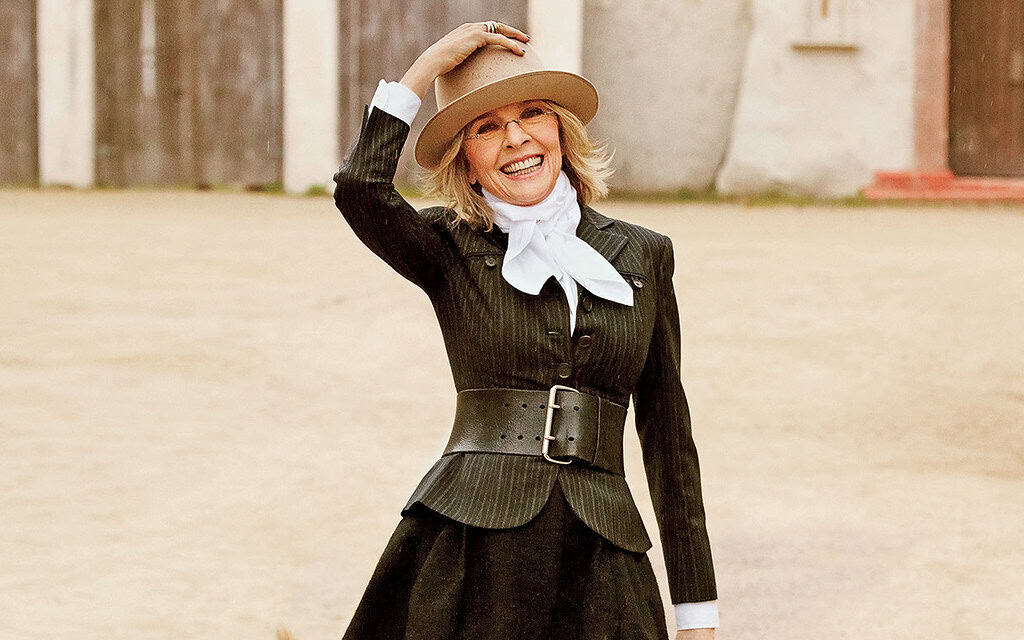Lessons in Individuality from Diane Keaton: How to Know and Love Yourself
Diane Keaton didn’t just play characters—she embodied a philosophy. Over the course of her decades-long career, she became a symbol of individuality, self-esteem, and unapologetic style. Her influence reaches far beyond the screen, shaping how women define themselves, dress themselves, and speak for themselves. In a world that often demands conformity, Keaton’s legacy is a reminder that authenticity is not only powerful—it’s timeless.
Her presence was never loud, but always unmistakable. Whether in film, fashion, or interviews, Keaton radiated a quiet confidence that challenged norms without needing to dismantle them. She didn’t ask for permission to be herself—she simply was. And in doing so, she gave others permission to do the same.
The Keaton Effect: Redefining Femininity
From her breakout role in Annie Hall to her later work in films like Something’s Gotta Give, Diane consistently challenged Hollywood’s expectations of femininity. She didn’t bend to trends or chase approval. Instead, she leaned into her quirks, her humor, and her intellect. Her characters were often complex, vulnerable, and fiercely independent—mirroring the woman behind them.
Keaton’s refusal to be typecast extended to her personal life. She spoke openly about choosing not to marry, about aging without apology, and about finding joy in solitude. These choices weren’t just personal—they were political. They offered a new blueprint for womanhood, one rooted in self-respect and self-definition.
Her interviews often revealed a woman who was deeply introspective, yet never self-serious. She laughed at herself, questioned her own contradictions, and embraced the messiness of being human. In doing so, Keaton redefined what it meant to be feminine—not as a performance, but as a practice of self-trust.
Style as a Statement of Individuality
Keaton’s fashion sense is as iconic as her filmography. The wide-brimmed hats, tailored suits, oversized belts, and layered turtlenecks weren’t costumes—they were declarations. Her style rejected the hyper-feminine norms of Hollywood and instead embraced a look that was intellectual, playful, and deeply personal.
She famously styled herself for Annie Hall, blending thrifted pieces with designer staples. The result was a look that felt lived-in and real—one that women across generations have emulated. Keaton’s wardrobe became a visual language for individuality, proving that style can be both armor and expression.
Her fashion choices weren’t just aesthetic—they were philosophical. She dressed for herself, not for the gaze of others. In interviews, she credited her mother for encouraging thrift shopping and self-expression. Her signature look became a kind of uniform for authenticity, one that resisted the pressure to conform and instead celebrated the joy of being different.
What Keaton Taught About Individuality

The icon’s influence isn’t just aesthetic—it’s philosophical. Her career and public persona offer enduring lessons in how to cultivate self-esteem. These teachings continue to resonate, especially in a culture that often prizes perfection over authenticity.
1. Embrace Eccentricity
Keaton never shied away from being different. Her mannerisms, her speech patterns, her wardrobe—all were uniquely hers. She showed that eccentricity isn’t something to hide; it’s something to celebrate. Being individual, in her world, was not a deviation—it was a destination.
2. Age with Grace and Humor
Rather than resist aging, she leaned into it. She spoke candidly about growing older, often with wit and wisdom. Her approach helped redefine aging for women—not as a decline, but as a deepening. She modeled a kind of self-esteem that grows stronger with time.
3. Dress for Yourself
Keaton’s style was never about pleasing others. She dressed to reflect her mood, her mind, and her memories. This autonomy in fashion became a powerful form of self-expression. Her unique style was stitched into every outfit, every silhouette, every accessory.
4. Speak Honestly
Whether in interviews or memoirs, Diane’s voice was always her own. She spoke with vulnerability and candor, modeling emotional honesty as a form of strength. Her individual identity wasn’t just visual—it was verbal, intellectual, and emotional.
Final Thought
Diane Keaton’s legacy is more than a collection of roles or outfits—it’s a philosophy of living. She taught that individuality is not a trait but a practice, one that requires courage, curiosity, and self-trust. In honoring her story, one honors the possibility of becoming fully oneself.





